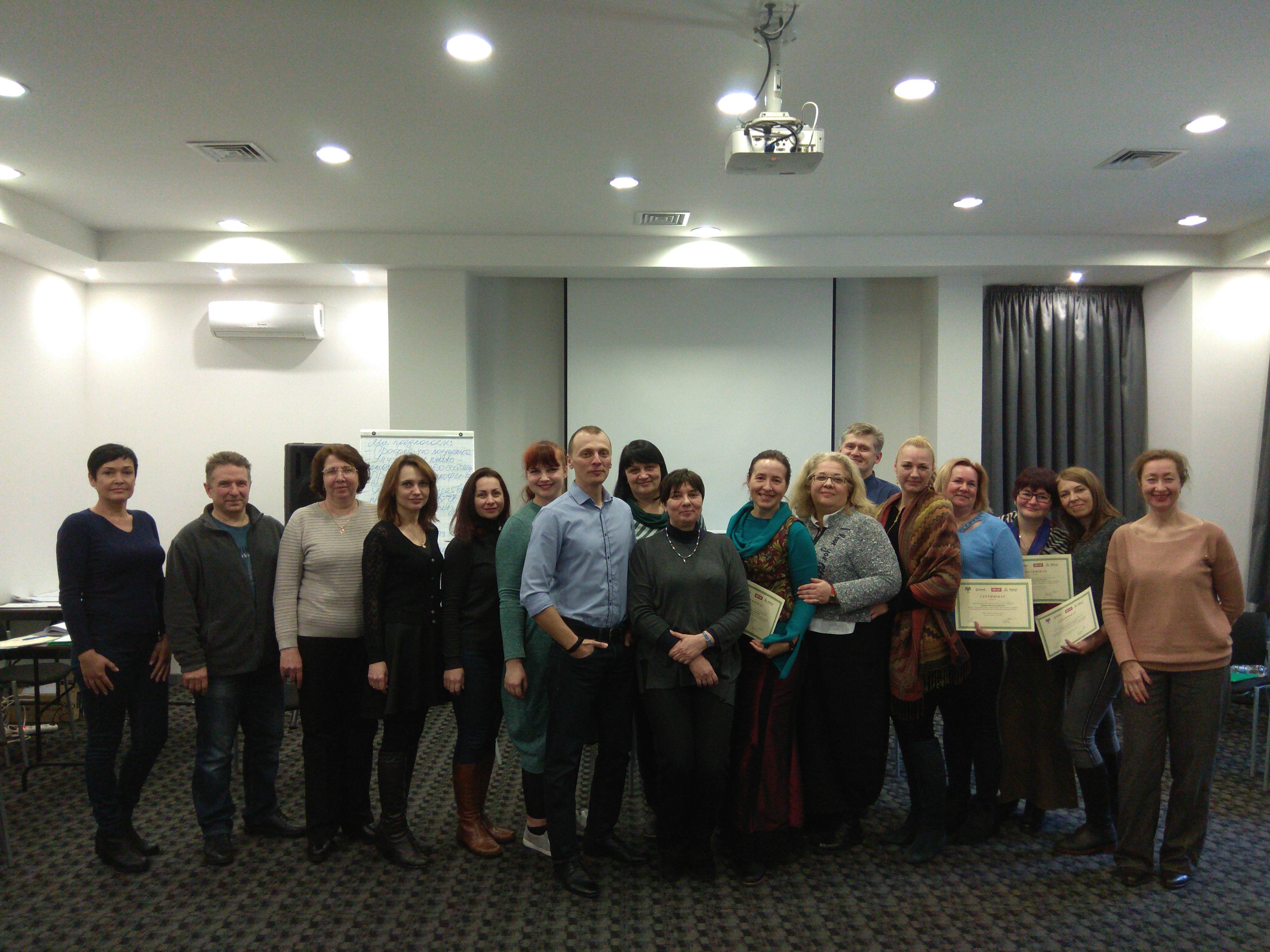From October 2018 to March 2019, the ICF “Alliance of Public Health” within the project “Accelerating the efforts on combating HIV/AIDS in Ukraine” (HealthLink) funded by the United States Agency for International Development (USAID), launched the implementation of a full-time supervisory system for medical and social workers.
This initiative is being implemented in 12 oblasts of Ukraine: Dnipropetrovsk, Kirovohrad, Zaporizhzhya, Donetsk, Odesa, Chernihiv, Poltava, Cherkasy, Kherson, Mykolayiv, Kyiv oblast and Kyiv city. In September, 16 supervisors from among doctors and psychologists were selected. From September 2018 to March 2019, three trainings were provided to the team for the development of working materials, practicing of skills and supervisory skills. The curriculum consisted of 72 hours of theoretical and practical training, exchange of experience and mastering of new forms and methods of work.

The key goal of supervision is to improve the quality of health services provided to HIV-positive people by health care facilities. Supervisors in their work pay special attention to the development of professional skills of doctors to counsel and test patients for HIV, optimize their HIV diagnostics route, interact with social workers and case managers, etc. If necessary, supervisors conduct mini-trainings on the use of rapid HIV tests, teach effective communication with patients from target groups, and find the right motivation for HIV-positive patients for enrolment on the dispensary record and forming adherence to treatment. A lot of attention in the work of supervisory groups is provided to discussing confidentiality issues, reducing the level of stigmatization and discrimination of HIV-positive patients and representatives of risk groups by health staff. Another important and relevant aspect that supervisors focus on during meetings with medical and social workers is prevention of professional burnout.

Supervision system is gaining momentum and improving. Supervised physicians become more loyal to HIV-positive patients and more knowledgeable about HIV. During the meetings, the existing problems encountered by healthcare professionals in their practice are discussed, first of all, “inefficient” mechanisms for the redirecting HIV-positive patients, “delayed” and/or ineffective patient routes, fears, stereotypes, knowledge gaps, etc.
Currently, the following achievements of regional coordinators may be identified:
- From November 2018 to February 2019, 81 supervisory meetings were held in 11 regions, 21 of them were held in HIV-service NGOs and 60 were held on the basis of HCFs. In total, supervisory meetings were attended by 385 medical workers (doctors, nurses, medical assistants) and 162 social workers;
- In the Kirovohrad oblast, after conducting supervisions, three medical staff achieved the dispensary enrolment and ART indicators and received incentive packages from the project.

